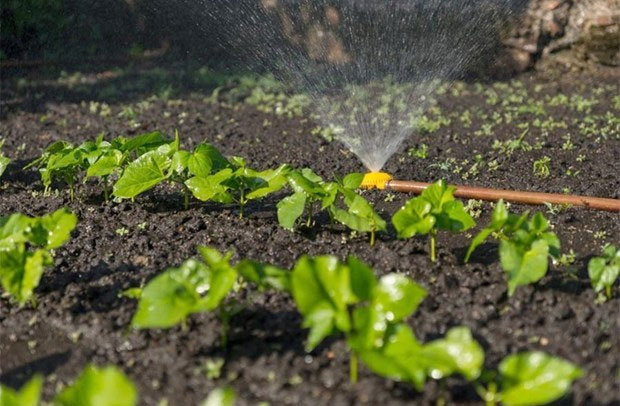Japan has successfully manufactured a biodegradable humidity sensor
The biodegradable humidity sensor helps farmers determine which areas of the farm need to be watered by transmitting a signal that varies according to the soil moisture.
Japanese scientists have successfully built a biodegradable humidity sensor for use in agriculture.

Most sensors will decompose in about 40 days.(Artwork: Bigfriendlyread).
The team, led by Kasuga Takaaki of Osaka University, has created a sensor circuit board made primarily of microscopic cellulose fibers.
This device will allow farmers to identify which areas of their farms need to be watered by transmitting a signal that varies according to the soil moisture .
According to the researchers, most sensors will decompose in about 40 days. However, this version still contains a small amount of non-biodegradable metal and requires external power to operate.
The team hopes to overcome the above disadvantages when commercializing this product.
NHK broadcaster quoted Kasuga researcher said that in the future, these sensors will help promote the technology of connected things (IoT) in the field of agriculture. As a result, agricultural activities will be managed more effectively.
- Self-biodegradable polymer materials
- Successful application of biodegradable polymers
- Japan has successfully developed a viral sensor
- Plant tracking sensor
- Successfully manufactured biodegradable plastic materials
- What is biodegradable bag?
- Earthquake-proof concrete
- '100% moisture' means air has become water?
- Chip sensor monitors tumor
- LG develops flexibility, good resistance and applies in many fields
- Successfully attached micro sensor to heart tissue
- Aircraft tail - engraved crystal of submarine
 The US company is about to build a supersonic passenger plane of 6,000km / h
The US company is about to build a supersonic passenger plane of 6,000km / h Japan develops avatar robot as in fiction film
Japan develops avatar robot as in fiction film Australia tested the world's first mango picking robot
Australia tested the world's first mango picking robot America develops technology to separate water from animal waste
America develops technology to separate water from animal waste